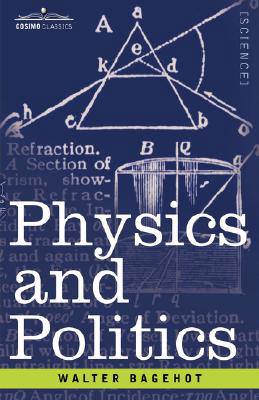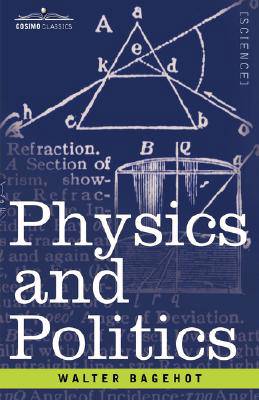
Je cadeautjes zeker op tijd in huis hebben voor de feestdagen? Kom langs in onze winkels en vind het perfecte geschenk!
- Afhalen na 1 uur in een winkel met voorraad
- Gratis thuislevering in België vanaf € 30
- Ruim aanbod met 7 miljoen producten
Je cadeautjes zeker op tijd in huis hebben voor de feestdagen? Kom langs in onze winkels en vind het perfecte geschenk!
- Afhalen na 1 uur in een winkel met voorraad
- Gratis thuislevering in België vanaf € 30
- Ruim aanbod met 7 miljoen producten
Zoeken
Omschrijving
The world was changing at a blistering speed in Bagehot's day. New scientific ideas were reshaping the world, and every field of human inquiry was affected by this new interest in giving a full explanation for the history of everything in existence. In this work, first published in 1872, Bagehot applies scientific ideas, like survival of the fittest, to the development of nations and government. He further discusses the effect of scientific and technological advancements, like the invention of stronger and more deadly weapons, on politics. British journalist WALTER BAGEHOT (1826-1877) was an early editor of The Economist and was among the first economists to discuss the concept of the business cycle. He is also the author of The English Constitution (1873) and The Postulates of English Political Economy (1885).
Specificaties
Betrokkenen
- Auteur(s):
- Uitgeverij:
Inhoud
- Aantal bladzijden:
- 148
- Taal:
- Engels
Eigenschappen
- Productcode (EAN):
- 9781605200163
- Verschijningsdatum:
- 1/12/2007
- Uitvoering:
- Hardcover
- Formaat:
- Genaaid
- Afmetingen:
- 140 mm x 216 mm
- Gewicht:
- 326 g

Alleen bij Standaard Boekhandel
+ 70 punten op je klantenkaart van Standaard Boekhandel
Beoordelingen
We publiceren alleen reviews die voldoen aan de voorwaarden voor reviews. Bekijk onze voorwaarden voor reviews.









